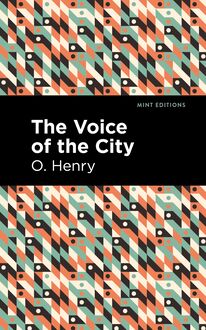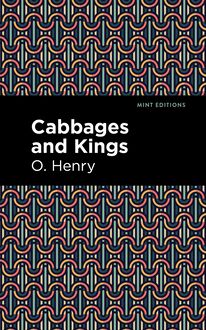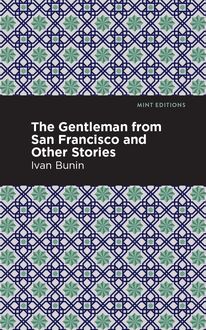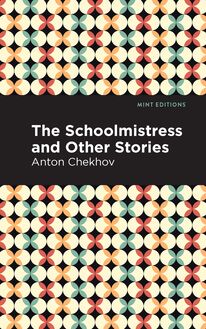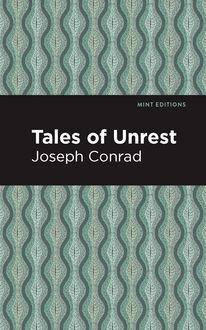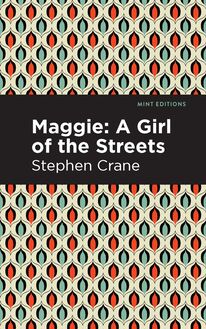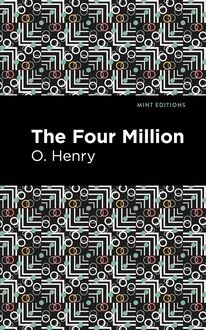-
 Univers
Univers
-
 Ebooks
Ebooks
-
 Livres audio
Livres audio
-
 Presse
Presse
-
 Podcasts
Podcasts
-
 BD
BD
-
 Documents
Documents
-
- Cours
- Révisions
- Ressources pédagogiques
- Sciences de l’éducation
- Manuels scolaires
- Langues
- Travaux de classe
- Annales de BEP
- Etudes supérieures
- Maternelle et primaire
- Fiches de lecture
- Orientation scolaire
- Méthodologie
- Corrigés de devoir
- Annales d’examens et concours
- Annales du bac
- Annales du brevet
- Rapports de stage
La lecture à portée de main
Vous pourrez modifier la taille du texte de cet ouvrage
Découvre YouScribe en t'inscrivant gratuitement
Je m'inscrisDécouvre YouScribe en t'inscrivant gratuitement
Je m'inscrisEn savoir plus
Vous pourrez modifier la taille du texte de cet ouvrage
En savoir plus

Description
The Schoolmistress and Other Stories (1920) is a collection of short stories by Russian writer Anton Chekhov. “The Schoolmistress” was written in 1897 and published in an issue of Moscow’s daily newspaper Russkiye Vedomosti. Even for Chekhov, whose work is characteristically bleak and noted for its unsparing realism, the title story of this collection is particularly hopeless. And yet, reading it alongside these other stories by a true icon of world and Russian literature, one cannot help but feel a sense of hope, reminded—as Chekhov’s readers almost invariably are—of the light one finds in even the darkest of places.
“The Schoolmistress,” which Chekhov wrote in Nice, is a brief story that follows Maria Vasilyevna as she returns to the village where she lives and works after collecting her pay in town. On the way, her cart nearly overturns, and she is forced to get out in the middle of a freezing river. To dry off, she takes a break at a local tavern, where she meets the formerly handsome Khanov, a landlord of her acquaintance. As she continues on her journey, she muses on her lot in life. Beset with memories and regrets, she struggles to make it home to a life she can hardly bear. “A Nervous Breakdown,” originally published in 1889, is the story of a young law student who reluctantly agrees to accompany his friends on a night in Moscow’s red-light district. Overwhelmed with despair and guilt, he struggles to reconcile what he sees with his own idealistic sense of the world. These are only two of the twenty-one works collected in The Schoolmistress and Other Stories, which showcase the immense talents of Anton Chekhov, an icon of Russian literature.
With a beautifully designed cover and professionally typeset manuscript, this edition of Anton Chekhov’s The Schoolmistress and Other Stories is a classic of Russian literature reimagined for modern readers.
Sujets
Informations
| Publié par | Mint Editions |
| Date de parution | 08 décembre 2020 |
| Nombre de lectures | 0 |
| EAN13 | 9781513274164 |
| Langue | English |
| Poids de l'ouvrage | 1 Mo |
Informations légales : prix de location à la page 0,0450€. Cette information est donnée uniquement à titre indicatif conformément à la législation en vigueur.
Extrait
The Schoolmistress and Other Stories
Anton Chekhov
The Schoolmistress and Other Stories was first published in 1897.
This edition published by Mint Editions 2021.
ISBN 9781513269160 | E-ISBN 9781513274164
Published by Mint Editions®
minteditionbooks.com
Publishing Director: Jennifer Newens
Design & Production: Rachel Lopez Metzger
Translated by: Constance Garnett
Typesetting: Westchester Publishing Services
C ONTENTS T HE S CHOOLMISTRESS A N ERVOUS B REAKDOWN M ISERY C HAMPAGNE A FTER THE T HEATRE A L ADY ’ S S TORY I N E XILE T HE C ATTLE -D EALERS S ORROW O N O FFICIAL D UTY T HE F IRST -C LASS P ASSENGER A T RAGIC A CTOR A T RANSGRESSION S MALL F RY T HE R EQUIEM I N THE C OACH -H OUSE P ANIC F EARS T HE B ET T HE H EAD -G ARDENER ’ S S TORY T HE B EAUTIES T HE S HOEMAKER AND THE D EVIL
T HE S CHOOLMISTRESS
At half-past eight they drove out of the town.
The highroad was dry, a lovely April sun was shining warmly, but the snow was still lying in the ditches and in the woods. Winter, dark, long, and spiteful, was hardly over; spring had come all of a sudden. But neither the warmth nor the languid transparent woods, warmed by the breath of spring, nor the black flocks of birds flying over the huge puddles that were like lakes, nor the marvelous fathomless sky, into which it seemed one would have gone away so joyfully, presented anything new or interesting to Marya Vassilyevna who was sitting in the cart. For thirteen years she had been schoolmistress, and there was no reckoning how many times during all those years she had been to the town for her salary; and whether it were spring as now, or a rainy autumn evening, or winter, it was all the same to her, and she always—invariably—longed for one thing only, to get to the end of her journey as quickly as could be.
She felt as though she had been living in that part of the country for ages and ages, for a hundred years, and it seemed to her that she knew every stone, every tree on the road from the town to her school. Her past was here, her present was here, and she could imagine no other future than the school, the road to the town and back again, and again the school and again the road…
She had got out of the habit of thinking of her past before she became a schoolmistress, and had almost forgotten it. She had once had a father and mother; they had lived in Moscow in a big flat near the Red Gate, but of all that life there was left in her memory only something vague and fluid like a dream. Her father had died when she was ten years old, and her mother had died soon after… She had a brother, an officer; at first they used to write to each other, then her brother had given up answering her letters, he had got out of the way of writing. Of her old belongings, all that was left was a photograph of her mother, but it had grown dim from the dampness of the school, and now nothing could be seen but the hair and the eyebrows.
When they had driven a couple of miles, old Semyon, who was driving, turned round and said:
“They have caught a government clerk in the town. They have taken him away. The story is that with some Germans he killed Alexeyev, the Mayor, in Moscow.”
“Who told you that?”
“They were reading it in the paper, in Ivan Ionov’s tavern.”
And again they were silent for a long time. Marya Vassilyevna thought of her school, of the examination that was coming soon, and of the girl and four boys she was sending up for it. And just as she was thinking about the examination, she was overtaken by a neighboring landowner called Hanov in a carriage with four horses, the very man who had been examiner in her school the year before. When he came up to her he recognized her and bowed.
“Good-morning,” he said to her. “You are driving home, I suppose.”
This Hanov, a man of forty with a listless expression and a face that showed signs of wear, was beginning to look old, but was still handsome and admired by women. He lived in his big homestead alone, and was not in the service; and people used to say of him that he did nothing at home but walk up and down the room whistling, or play chess with his old footman. People said, too, that he drank heavily. And indeed at the examination the year before the very papers he brought with him smelt of wine and scent. He had been dressed all in new clothes on that occasion, and Marya Vassilyevna thought him very attractive, and all the while she sat beside him she had felt embarrassed. She was accustomed to see frigid and sensible examiners at the school, while this one did not remember a single prayer, or know what to ask questions about, and was exceedingly courteous and delicate, giving nothing but the highest marks.
“I am going to visit Bakvist,” he went on, addressing Marya Vassilyevna, “but I am told he is not at home.”
They turned off the highroad into a by-road to the village, Hanov leading the way and Semyon following. The four horses moved at a walking pace, with effort dragging the heavy carriage through the mud. Semyon tacked from side to side, keeping to the edge of the road, at one time through a snowdrift, at another through a pool, often jumping out of the cart and helping the horse. Marya Vassilyevna was still thinking about the school, wondering whether the arithmetic questions at the examination would be difficult or easy. And she felt annoyed with the Zemstvo board at which she had found no one the day before. How unbusiness-like! Here she had been asking them for the last two years to dismiss the watchman, who did nothing, was rude to her, and hit the schoolboys; but no one paid any attention. It was hard to find the president at the office, and when one did find him he would say with tears in his eyes that he hadn’t a moment to spare; the inspector visited the school at most once in three years, and knew nothing whatever about his work, as he had been in the Excise Duties Department, and had received the post of school inspector through influence. The School Council met very rarely, and there was no knowing where it met; the school guardian was an almost illiterate peasant, the head of a tanning business, unintelligent, rude, and a great friend of the watchman’s—and goodness knows to whom she could appeal with complaints or inquiries…
“He really is handsome,” she thought, glancing at Hanov.
The road grew worse and worse… They drove into the wood. Here there was no room to turn round, the wheels sank deeply in, water splashed and gurgled through them, and sharp twigs struck them in the face.
“What a road!” said Hanov, and he laughed.
The schoolmistress looked at him and could not understand why this queer man lived here. What could his money, his interesting appearance, his refined bearing do for him here, in this mud, in this God-forsaken, dreary place? He got no special advantages out of life, and here, like Semyon, was driving at a jog-trot on an appalling road and enduring the same discomforts. Why live here if one could live in Petersburg or abroad? And one would have thought it would be nothing for a rich man like him to make a good road instead of this bad one, to avoid enduring this misery and seeing the despair on the faces of his coachman and Semyon; but he only laughed, and apparently did not mind, and wanted no better life. He was kind, soft, naive, and he did not understand this coarse life, just as at the examination he did not know the prayers. He subscribed nothing to the schools but globes, and genuinely regarded himself as a useful person and a prominent worker in the cause of popular education. And what use were his globes here?
“Hold on, Vassilyevna!” said Semyon.
The cart lurched violently and was on the point of upsetting; something heavy rolled on to Marya Vassilyevna’s feet—it was her parcel of purchases. There was a steep ascent uphill through the clay; here in the winding ditches rivulets were gurgling. The water seemed to have gnawed away the road; and how could one get along here! The horses breathed hard. Hanov got out of his carriage and walked at the side of the road in his long overcoat. He was hot.
“What a road!” he said, and laughed again. “It would soon smash up one’s carriage.”
“Nobody obliges you to drive about in such weather,” said Semyon surlily. “You should stay at home.”
“I am dull at home, grandfather. I don’t like staying at home.”
Beside old Semyon he looked graceful and vigorous, but yet in his walk there was something just perceptible which betrayed in him a being already touched by decay, weak, and on the road to ruin. And all at once there was a whiff of spirits in the wood. Marya Vassilyevna was filled with dread and pity for this man going to his ruin for no visible cause or reason, and it came into her mind that if she had been his wife or sister she would have devoted her whole life to saving him from ruin. His wife! Life was so ordered that here he was living in his great house alone, and she was living in a God-forsaken village alone, and yet for some reason the mere thought that he and she might be close to one another and equals seemed impossible and absurd. In reality, life was arranged and human relations were complicated so utterly beyond all understanding that when one thought about it one felt uncanny and one’s heart sank.
“And it is beyond all understanding,” she thought, “why God gives beauty, this graciousness, and sad, sweet eyes to weak, unlucky, useless people—why they are so charming.”
“Here we must turn off to the right,” said Hanov, getting into his carriage. “Good-by! I wish you all things good!”
And again she thought of her pupils, of the examination, of the watchman, of the School Council; and when the wind brought the sound of the retreating carriage these thoughts were mingled with others. She longed to think of beautiful eyes, of love, of the happiness which would never be…
His wife? It was cold in the morning, there was no one to heat the stove, the watchman disappeared; the child
-
 Univers
Univers
-
 Ebooks
Ebooks
-
 Livres audio
Livres audio
-
 Presse
Presse
-
 Podcasts
Podcasts
-
 BD
BD
-
 Documents
Documents
-
Jeunesse
-
Littérature
-
Ressources professionnelles
-
Santé et bien-être
-
Savoirs
-
Education
-
Loisirs et hobbies
-
Art, musique et cinéma
-
Actualité et débat de société
-
Jeunesse
-
Littérature
-
Ressources professionnelles
-
Santé et bien-être
-
Savoirs
-
Education
-
Loisirs et hobbies
-
Art, musique et cinéma
-
Actualité et débat de société
-
Actualités
-
Lifestyle
-
Presse jeunesse
-
Presse professionnelle
-
Pratique
-
Presse sportive
-
Presse internationale
-
Culture & Médias
-
Action et Aventures
-
Science-fiction et Fantasy
-
Société
-
Jeunesse
-
Littérature
-
Ressources professionnelles
-
Santé et bien-être
-
Savoirs
-
Education
-
Loisirs et hobbies
-
Art, musique et cinéma
-
Actualité et débat de société
- Cours
- Révisions
- Ressources pédagogiques
- Sciences de l’éducation
- Manuels scolaires
- Langues
- Travaux de classe
- Annales de BEP
- Etudes supérieures
- Maternelle et primaire
- Fiches de lecture
- Orientation scolaire
- Méthodologie
- Corrigés de devoir
- Annales d’examens et concours
- Annales du bac
- Annales du brevet
- Rapports de stage
